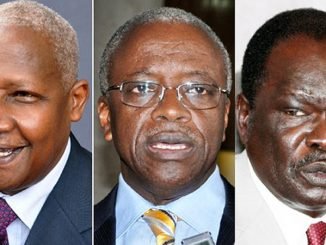
Kampala, Uganda | URN | With the Governments of Uganda and Tanzania ready with oil companies to sign the Final Investment Decision (FID) for the development of the oil fields and the proposed East African Crude Oil Pipeline (EACOP), experts have warned that Ugandans might miss out on employment opportunities.
The agreement will be between governments of Uganda and Tanzania, and oil companies of Total E&P and China’s CNOOC.
The over 15 Billion Dollar agreement that was to be signed in March was cancelled following the death of Tanzania’s president John Pombe Magufuli and it was postponed to April 2021.
The signing of the Final Investment Decision will see the commencement of the construction of the oil and gas pipeline and this is expected to create hundreds of jobs at the production stage, adding to the hundreds that were created at the exploration stage.
The jobs in production will be created at the installation and connection of pipelines to the oil fields and the refinery for both crude oil export and refined petroleum.
There will be more jobs created at the construction of a refinery and processing facilities, among other key infrastructures.
However, experts say for Ugandans to access such employments, they need to have their technical skills certified by the internationally recognised institutes across the globe.
Ramathan Wagogo, Executive Director Petro Marine Uganda says for one to get a job in the oil and gas sector, there are policies mostly focusing on the safety of workers and internationally recognized skills certificates.
“The organizations at the helm of the industry like Total E&P and CNOOC will not change their policies of employment so that Ugandans can fit in, but it is Ugandans to change and fit in the policies,” he observes.
Much as all stakeholders and government officials are insisting on local content that enables Ugandans to benefit, there is no way around the the international certification requirement.
Alfred Stefan Cherukut, Director of Operation Ugentruck Engineering, says Uganda lacks people who have skills that are mandatory needed, noting that such a small issue can knock you out at the procurement stage.
He says such jobs that need highly specialized skills include hoisting and lifting, welders, civil technicians, craftsmen, machine operators, and heavy-duty truck drivers, among others and these require international certification.
With the oil production sector at its peak, Cherukut says is most likely to employ between 11,000 to 15,000 people with expectations that the figures will shoot up.
Keith Kitunguru Boosa, Director of operations Petro Marine Uganda blames Ugandans for failing to maintain standards for their products for international markets noting that this will affect people who would want to supply commodities to foreigners that will be here for the oil and gas sector.
Read Also: Uganda’s oil sector suffering from political interference – Researchers
Uganda currently has two recognized institutes offering petroleum courses that include, Uganda Petroleum Institute, Kigumba (UPIK) and Institute of Petroleum Studies.
Jolly Kagira, a community leader Mbarara says that people lack information about the oil and gas sector the reason they will be left out.
Isma Matovu, a welder at garage street says he knows nothing about the oil and gas developments and their international certified skills demand.
The 1,445km East African Crude Oil Pipeline (EACOP) will be running from Hoima to Chongoleani terminal in Tanga at the Indian Ocean.
The construction is expected to begin shortly after the Final Investment Decision is signed and will take 36 months.



